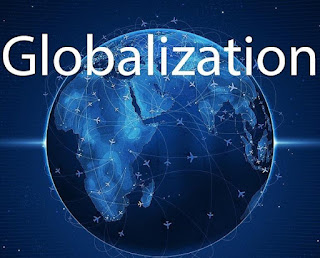DO CIVIL SOCIETY AND NGOS STRENGTHEN OR UNDERMINE THE ROLE OF THE GOVERNMENTS IN INTERNATIONAL RELATIONS? WHY OR WHY NOT?
Civil society is state or situation of people living in particular community or nation having shared interest, values and purpose getting benefit to have right of individuals, enjoying liberty, and to have resources to develop personal potential.
In London School of Economics Centre for Civil Society's working definition is illustrative of what is civil society. According to them, "Civil Society refers to the arena of uncoerced collective action around shared interest, values, and purposes. Civil society commonly embraces a diversity of spaces, actors and institutional forms, varying in their degree of formality, autonomy and power. Civil societies are often populated by organizations such as registered charities, development non-governmental organizations, community groups, women's organizations, faith - based organizations, professional associations, trade Unions, self-help groups, social movements, business associations, coalitions and advocacy groups.
In short civil society is the aggregate of non-governmental organizations and institutions that manifest will and interest of the citizens.
It was said that Government alone do not make democracy work. Private initiative is also essential, including a vital role for those institutions which are collectively described as "Civil Society".
Again, when we talk about of civil society, this is the aggregate of all the non-governmental organizations.
Now, I know that there are still some us confused about the civil society and NGO's. The common question that may appear in one mind is "Do civil society and NGO's strengthen or undermine the role of the governments in international relations? Why or why not?"
Now, let's first discuss the role of civil society.
The civil society play a significant role in our nation. The following are the role of civil society:
Watchdog
The first one is as watchdog. It holds the institutions or any institutions to account, promote, transparency and accountability. An example of civil society that serves as our watchdog is the Government Watch (G-watch).
Advocate
The second one is to advocate. It raises awareness of societal issues and challenges and advocating for change.
Service provider
The third one is as service provider. Some civil societies organization are delivering services to meet societal needs such as education, food and security.
Expert
The fourth one is as an expert. They serve as an expert bringing unique knowledge and expert to shape policy and strategy and identifying and building solutions.
Citizen champion
Then we have citizenship champion. They encourage citizen engagement and support the rights of citizens.
Solidarity suppoter
The last one is as solidarity suppoters. They promote fundamental and universal values.
Now, since we already have some insight about civil society, let's now discuss the definition of NGOs in order to understand more this blog.
Non-governmental organizations or NGOs are non-governmental, voluntary associations of people and communities, which work at local, regional, national or even at international level.
They are organized for a mission with aims and objects of common social good. They get funding from the charities, donors an government agencies to perform social services.
Some are organize around specific issues:
- Human rights
- Environment
- Health
- Poverty Eradication
- Employment
Now, what is the difference between civil society organization and NGO?
Civil Society organization refer to different types of non-corporate private voluntary institutions promotint a variety of public causes. While non-governmental organizations is only one form of civil society organization, though often the two are taken to mean the same thing. But again do not be confused with the term CSO and NGOs. CSO is the wider term or the broad term of an organization.
Now, that we already understand these two terms let's now answer the question "Do civil society and NGO's strengthen or undermine the role of the governments in international relations? Why or why not?"
Yes, we can't deny the fact that Civil society and INGOs strengthened the role of government by aiding various services that the government may not be in a position to cover or is facing inadequacies. They help the government achieve its vision and mission to serve society.
NGOs have influenced international economic relations and international economic law. They represent and support the interests of the civil society and make pluralistic global governance possible. NGOs thus represent society in the international system in the era of globalisation.
More over, they will also strengthen the role of the local governments as their work fills up the gap which the government operations are not able to fill directly. Some social policies which cannot afford to be openly declared by the government can be implemented through the functions of the civil society and NGOs.
I know that some of us are confused about the role of civil society and NGOs strengthen the governments in international relations , however through this blog you will understand and gain knowledge regarding these terms and its function . Now, that you already have insight about these two, it will help you to have a better understanding regarding to our current situation . Hoping that this blog gives you more insight and information about civil society and NGOs . Thank you for reading.




Comments
Post a Comment